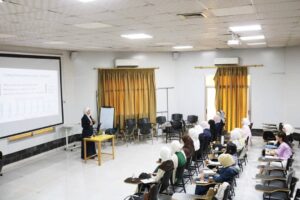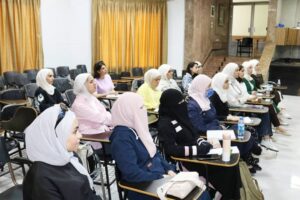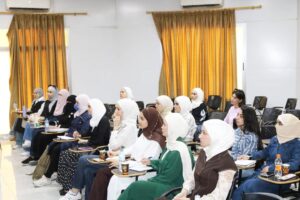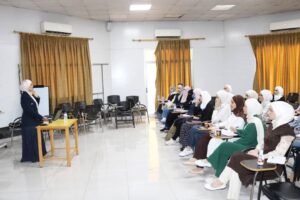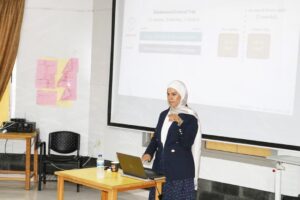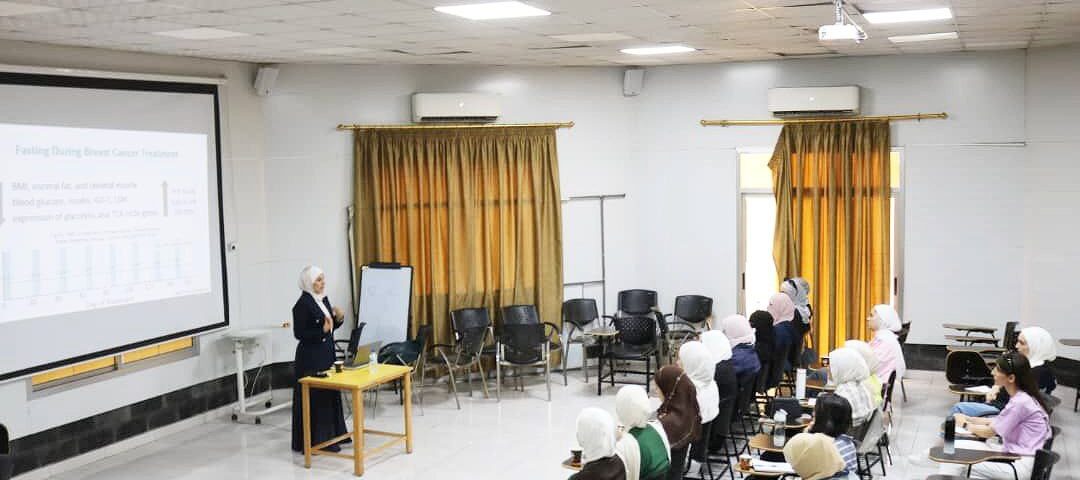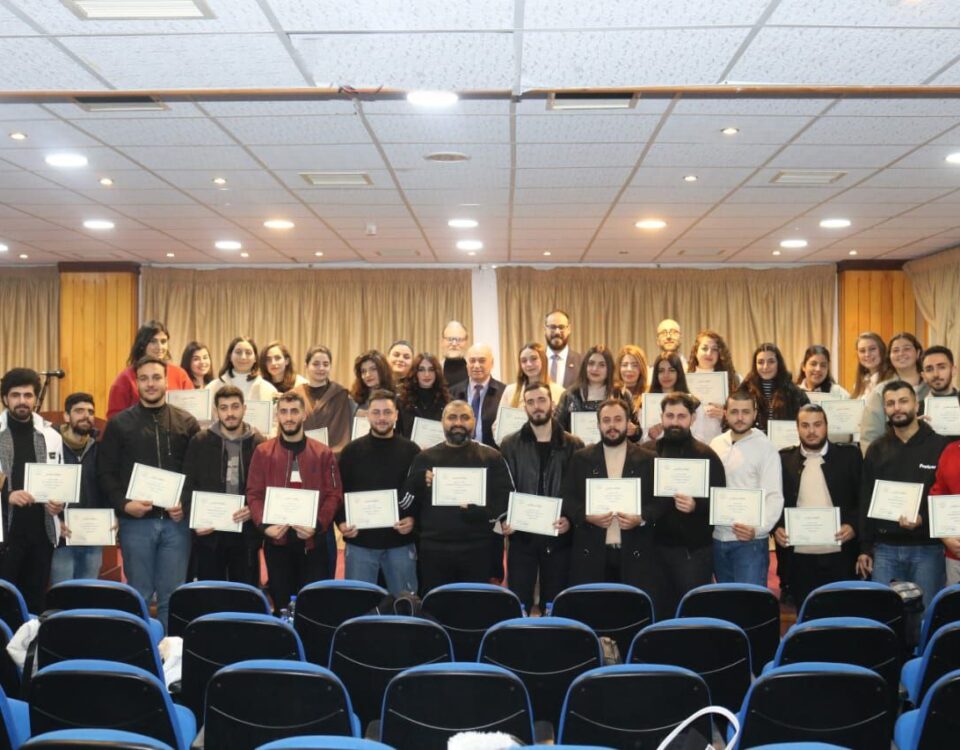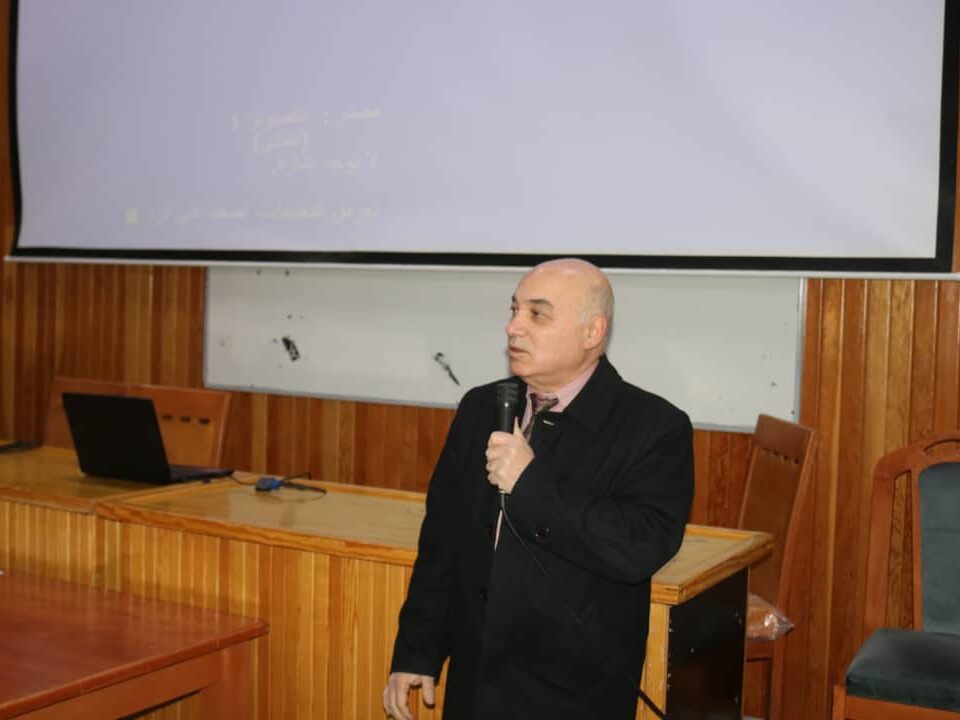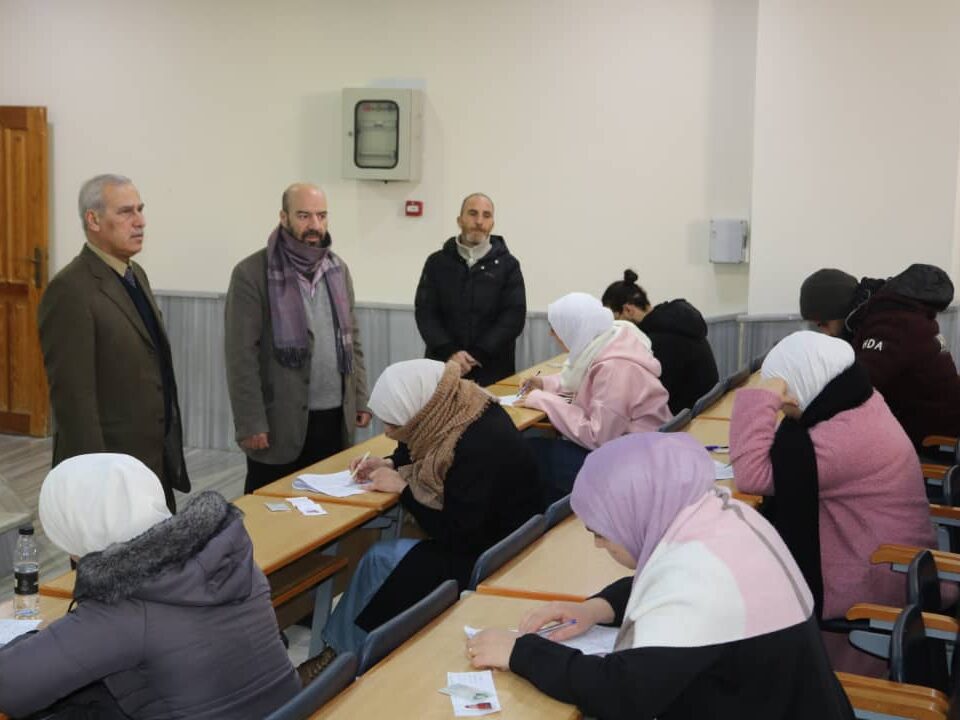The Faculty of Health Sciences has launched a one-year training program, with four hours of training per day. The program includes theoretical and practical training and courses.
Training takes place in a number of leading medical institutions, such as Homs University Hospital and Al-Birr Hospital. In addition, there are specialized courses in research reading and advanced scientific research, as well as complementary skills in communication, work ethics, and medical English.
Moreover, there are external experts, including Dr. Faiza Qalam, a nutrition expert at Ohio University in the United States, and Dr. Abdul Manaf Fadel, as they share their scientific and professional expertise with the students, enhance their theoretical and practical skills, and prepare them for the realistic work environment.
President of Homs University, Prof. Tarek Houssam ElDeen, has emphasized that the program is a strategic step in the university goal to enhance applied education, indicating the administration’s continued support for the academic programs that provide students with professional skills that keep pace with the demands of the healthcare labor market. He has also highlighted the university commitment to providing a stimulating learning environment contributing to students’ professional qualifications for effective integration into the local and international labor market.
For his part, Dr. Kamal Wannous, the head of the nutrition department and program supervisor, has explained that this program is part of a comprehensive development vision aimed at preparing specialized cadres capable of meeting the challenges of the field. Furthermore, he has noted that the work is currently underway to establish specialized clinics at the faculty, a health kitchen under academic supervision, and a sports club focused on physical and nutritional health.
Dr. Qalam has emphasized the importance of the program as a qualitative leap in graduate training, noting that the focus on reading research, methods for constructing scientific research, and their applications to issues such as obesity, chronic diseases, cancer, and intermittent fasting provides graduates with critical thinking tools and enhances their professional readiness.
.
